
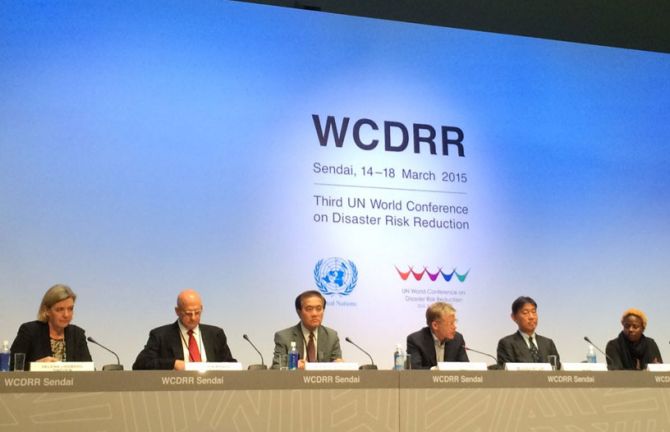
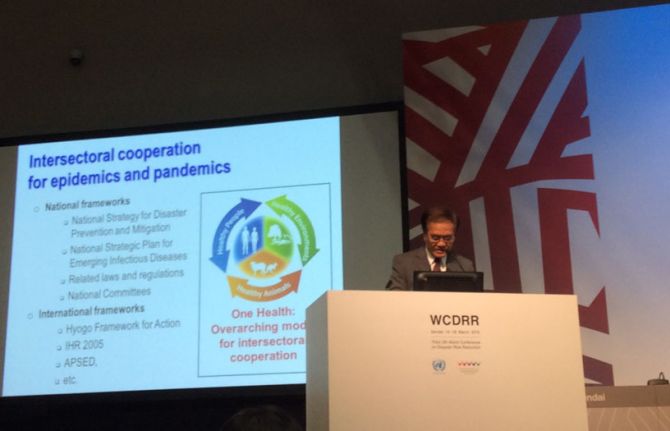
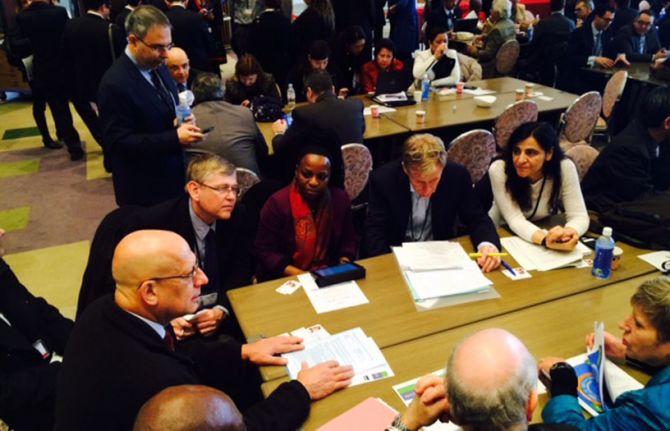
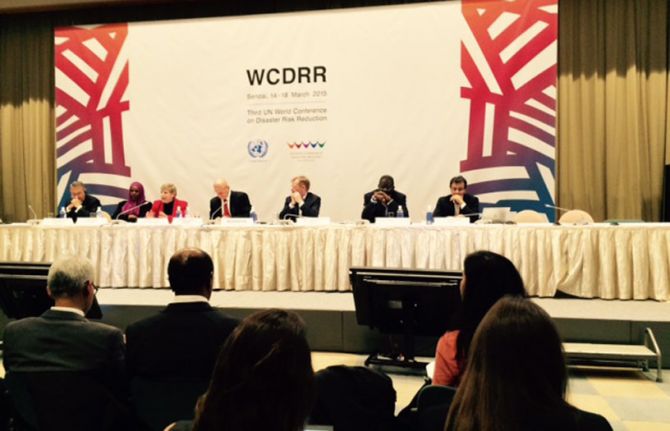
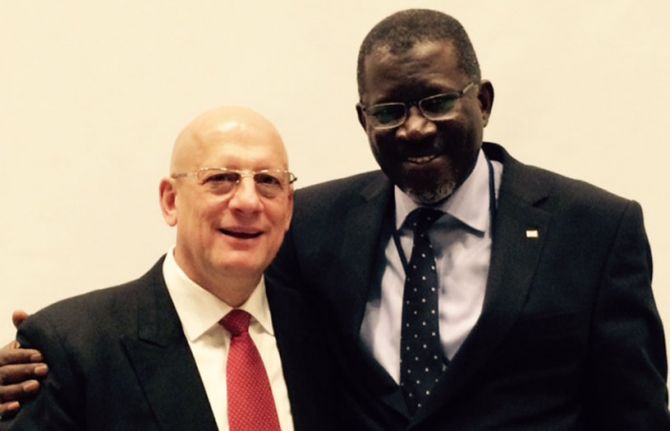
Update
The world meets to discuss disaster risk reduction at high-level UN conference
17 March 2015
17 March 2015 17 March 2015Disasters are an increasing threat to the lives and livelihoods of millions of people around the globe and can have a profound impact on social, economic and health outcomes. Participants at the Third United Nations World Conference on Disaster Risk Reduction, taking place in Sendai, Japan, are discussing how to promote a sustainable development agenda addressing risk and supporting greater resilience for countries and communities.
The high-level meeting, which is taking place from 14 to 18 March, is being attended by UN Secretary-General Ban Ki-moon, several heads of state, a number of UN heads of agencies and more than 100 ministers. It also includes some 8000 delegates from government, civil society, the private sector and donor agencies, as well as tens of thousands of members of the public attending the various public forums.
A broad array of issues are being debated over the five days, ranging from how to cope with emergency disasters, such as earthquakes, droughts and tsunamis, to reducing the risks of epidemics, such as Ebola, bird flu and HIV. Emphasis is being placed throughout on providing practical solutions to protect the most vulnerable. There is also a recognition that efforts to achieve key development, economic and health goals cannot succeed when disasters continue to erode progress and cost hundreds of billions of dollars a year globally.
UNAIDS has a significant presence at the conference and is co-organizing, with WHO, UNFPA and UNISDR, a number of official events, including a day-long public forum on protecting people’s health from disaster risks.
A dominant theme across these events involves showcasing how risk reduction in the post-2015 development agenda can draw on the experience, lessons learned and successes of the AIDS response. The importance of mobilizing vulnerable communities, putting them at the centre of disaster prevention, preparedness, recovery and rehabilitation efforts, is being highlighted, along with the need to foster effective shared accountability. Mainstreaming health interventions across risk management programmes is also a prominent message.
A post-2015 framework for disaster risk reduction, which will govern this area for the next 15 years, will emerge from the conference. Health is fully embedded in the current framework, with particular mention of pandemics and epidemics. A Sendai Declaration will also be adopted reaffirming political commitment to strengthen efforts and cooperation for disaster risk reduction worldwide.
Quotes
"The bottom line is that resilience can never be produced in isolation—we need to bring actors together and provide the means for multisectoral coordination based on a “whole of society approach”.
“Communities are the foundation stone for global disaster resilience. Lessons of preparedness and recovery from disasters and epidemics, including HIV and Ebola, demonstrate that people and communities succeed when placed at the centre of decision-making and action.”
“Strengthening health systems must go hand in hand with community strengthening and resilience. This is where the Red Cross and Red Crescent volunteers come in, putting people at the centre, accompanying communities to address their needs and building on their norms, values and knowledge.”
“In the 10 years since Hyogo, governments have increasingly recognized that healthy people are resilient people and that resilient people recover much more quickly from emergencies and disasters.”
“Health and well-being underpin resilience, which is something a disaster risk reduction framework cannot succeed without. This is why health is such an essential component of the post-2015 framework.”



